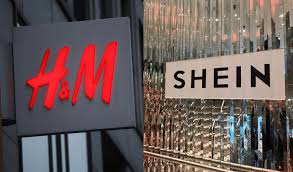Swedish fashion giant H&M has filed a lawsuit against Chinese fast-fashion retailer Shein in a Hong Kong court, alleging that Shein has repeatedly copied H&M’s designs.
Shein Accused of Repeatedly Copying H&M’s Designs:
This is not the first time that Shein has been accused of copying designs. In 2019, the company was sued by British fashion brand Topshop for copyright infringement. Shein settled the lawsuit out of court.
The lawsuit, which was filed in December 2022, claims that Shein has copied H&M’s designs for a wide range of clothing items, including dresses, tops, bottoms, and accessories. H&M alleges that Shein has copied the designs “virtually identically,” and that the copying has been “willful and deliberate.”
H&M is seeking damages from Shein for copyright infringement, as well as an injunction to prevent Shein from continuing to sell the copied designs.
Shein’s Contribution to Fast Fashion:

Shein is a rapidly growing company, and it has become one of the most popular online retailers in the world. The company’s low prices and wide selection of products have attracted a large number of customers.Another reason is Shein’s promotion on social media. However, Shein’s rapid growth has also raised concerns about the company’s business practices.
Other Controversy Related To Shein:
Not only the copyright infringement allegations, Shein has also been accused of using sweatshop labor and of selling counterfeit products. The company has denied these allegations.
The lawsuit by H&M is a significant development in the ongoing debate about Shein’s business practices. If H&M is successful in its lawsuit, it could set a precedent for other fashion brands that are seeking to protect their intellectual property from Shein.
The impact of the lawsuit on the fast fashion industry:
The H&M-Shein lawsuit could have a significant impact on the fast fashion industry. If H&M is successful in its lawsuit, it could deter other fast fashion retailers from copying designs. This could lead to more innovation in the fast fashion industry, as brands would be forced to come up with their own unique designs.
The lawsuit could also lead to changes in the way that fast fashion retailers operate. Brands may be more careful about sourcing their products, and they may be more transparent about their manufacturing practices. This could make the fast fashion industry more sustainable and ethical.
Does India need Shein back?
The company has been accused of a number of unethical business practices.On the one hand, Shein’s low prices have made it accessible to a wider range of consumers in India. The company’s wide selection of products has also given Indian consumers more choice.
On the other hand, Shein’s use of sweatshop labor has raised concerns about the working conditions of the people who make the company’s products. The company’s alleged sale of counterfeit products has also raised concerns about the quality of the products that Shein sells.
So, does India need Shein back? It’s a complex question with no easy answer. Ultimately, it’s up to Indian consumers to decide whether or not they want to support Shein.
Conclusion:
The H&M-Shein lawsuit is a significant development in the fast fashion industry. The outcome of the lawsuit could have a major impact on the way that fast fashion retailers operate. It is too early to say how the lawsuit will be resolved, but it is clear that the lawsuit has already had a significant impact on the industry.













